-
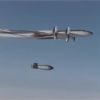 +25 +1
+25 +150 Megaton Tsar Bomba Declassified • Ivan RDS-220 Hydrogen Bomb
The Soviet RDS-220 hydrogen bomb (code name Ivan or Vanya), also known as Tsar Bomba (Russian: Царь-бо́мба, tr. Tsar'-bómba, IPA: [t͡sarʲ ˈbombə], lit. 'Tsar bomb'), was the most powerful nuclear weapon ever created and tested. Tested on 30 October 1961 as an experimental verification of calculation principles and multi-stage thermonuclear weapon designs, it also remains the most powerful human-made explosive ever detonated.
-
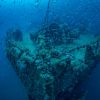 +34 +1
+34 +1What is pre-war steel, and why are people stealing it?
Dredging up treasure from sunken ships is an ancient tradition, but, it turns out, some treasure, like per-war steel, is precious for different reasons.
-
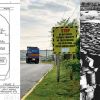 +20 +1
+20 +1Mapping Manhattan Project radioactive waste across the St. Louis region
In partnership with The Missouri Independent and The Associated Press, MuckRock mapped various radioactive waste sites in the St. Louis area, over the past 75 years.
-
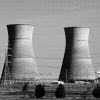 +23 +1
+23 +1Why are we so afraid of nuclear power?
It's greener than renewables and safer than fossil fuels—but facts be damned.
-
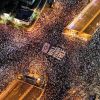 +14 +1
+14 +1After 18 years, Europe's largest nuclear reactor starts regular output
Finland's much-delayed Olkiluoto 3 (OL3) nuclear reactor, Europe's largest, began regular output early on Sunday, its operator said, boosting energy security in a region to which Russia has cut gas and power supplies.
-
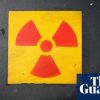 +16 +1
+16 +1What is the radioactive capsule missing in WA used for and how dangerous is it?
Authorities are continuing the search for a tiny radioactive capsule lost along a 1,400km stretch of Western Australian desert highway. The 8mm by 6mm capsule fell from a secure device on a truck that was travelling from a Rio Tinto mine site, north of Newman in the Pilbara region, to Perth, where it was being sent for repair.
-
 +28 +1
+28 +1NASA nuclear propulsion concept could reach Mars in just 45 days
NASA selected a nuclear propulsion concept for Phase I development as part of its Innovative Advanced Concepts (NIAC) program for 2023. The Nuclear Thermal and Nuclear Electric Propulsion (NTP/NEP) concept is a new class of bimodal nuclear propulsion system that uses a "wave rotor topping cycle," as per a NASA blog post.
-
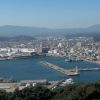 +3 +1
+3 +1Fukushima gets ready to discharge treated water into the sea
Eleven years after the Fukushima nuclear catastrophe, the region's inhabitants are preparing for a new step. Japan will soon start discharging treated water into the sea. Water that touched the fuel has become radioactive. Filtered in a plant within the power plant, it's kept in tanks that will reach their maximum capacity in 2023.
-
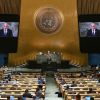 +17 +1
+17 +1UN General Assembly says Israel must get rid of its nuclear arsenal
Five countries opposed the resolution on the 'risk of nuclear proliferation in the Middle East'.
-
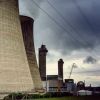 +15 +1
+15 +1UK’s nuclear waste cleanup operation could cost £260bn
The cost of decommissioning the UK’s 20th-century nuclear waste could rise to £260bn as the aged and degrading sites present growing challenges, according to analysis presented to an international group of experts. As the government pursues nuclear energy with the promise of a new generation of reactors, the cost of safely cleaning up waste from previous generations of power stations is soaring.
-
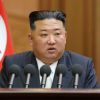 +10 +1
+10 +1Seoul says N. Korea will self-destruct if it uses nukes
South Korea has warned North Korea's government that using its nuclear weapons would put it on a “path of self-destruction.”
-
 +15 +1
+15 +1Lawmakers vote to keep Diablo Canyon nuclear power plant until 2030
California state lawmakers voted early Wednesday morning to keep the Diablo Canyon Nuclear power plant running. After an overwhelming majority vote, The plant will keep running till 2030 instead of 2025.
-
 +22 +1
+22 +1In 'project of the century', Swiss seek to bury radioactive waste
Storing radioactive waste above ground is a risky business, but the Swiss think they have found the solution: burying spent nuclear fuel deep underground in clay. The Mont Terri international laboratory was built to study the effects of burying radioactive waste in clay which sits 300 metres (985 feet) below the surface near Saint-Ursanne in the northwestern Jura region.
-
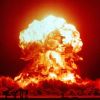 +17 +1
+17 +1The UN said nuclear war is 'back within the realm of possibility.' Here are the places in the US most likely to be hit in a nuclear attack.
The UN secretary-general said nuclear war is "back within the realm of possibility" following Russia's warning it was putting its nuclear forces on alert amid its war in Ukraine that threatens to draw NATO into direct combat with Russia.
-
 +22 +1
+22 +1World's most radioactive places where people have birth defects from nukes
BIRTH defects and cancers blight the tortured people who have the misfortune of living in the world’s most radioactive places. More than seven decades on from the first atomic bomb tests, the fallout continues to wreak havoc with these communities.
-
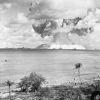 +3 +1
+3 +1Why do nuclear bombs form mushroom clouds?
What forms this iconic shape?
-
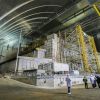 +19 +1
+19 +1Chernobyl's Molten Guts Are Warming Up, And Scientists Don't Know Why
Slow rise in neutrons stirs concerns about possible “criticality” accident
-
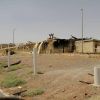 +15 +1
+15 +1Trump asked for options for attacking Iran last week, but held off
President Donald Trump, with two months left in office, last week asked for options on attacking Iran's main nuclear site, but ultimately decided against taking the dramatic step, a U.S. official said on Monday.
-
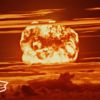 +12 +1
+12 +1What a Nuclear Bomb Explosion Feels Like
The existential threat of nuclear war is no longer a Cold War memory. With nine countries armed with around 15,000 atomic bombs up to 53 times stronger than those dropped in the Second World War, the stakes are arguably higher.
-
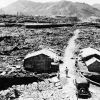 +23 +1
+23 +1'I still cannot get over it': 75 years after Japan atomic bombs, a nuclear weapons ban treaty is finally realised
Sixty-nine nations, however, have not signed it, including all of the nuclear powers such as the US, UK, Russia, China, France, India, Pakistan and North Korea, as well as NATO member states (apart from the Netherlands who voted against), Japan and Australia.
Submit a link
Start a discussion




















